Search Results
Search
Filter results
Advanced Filters
Your search returned 288 Solutions
-
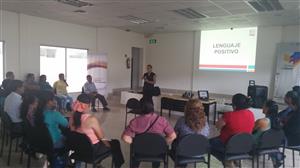
All-Sector-Cooperation creating jobs in thousands of companies
The Ecuadorian Labour Integration Service (SIL) promotes the inclusion of people with disabilities in the open labour market through training and assistance and by working together with the entire socio-labour spectrum. By 2016, some 12,900 people had found a job in 8,355 public and private companies.
FENEDIF - National Federation of Ecuadorian with Physical Disability, Labour Integration Service (SIL) of 2006 National Federation of Ecuadorians with Physical Disabilities (FENEDIF), in partnership with CONADIS, Petroamazonas EP and others, Ecuador, Ecuador -
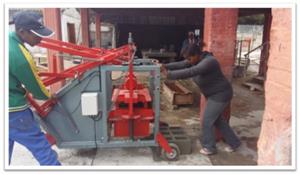
Developmental and career path training
for adults with intellectual disabilities
Cape Mental Health, “TRAINING WORKSHOPS UNLIMITED”, South Africa
-
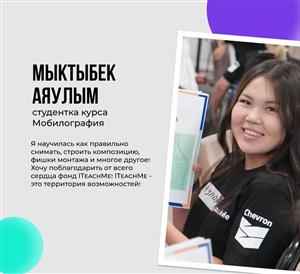
Using gamification and mass events to train young people with disabilities in IT skills
ITeachMe Competence Development Centre, Kazakhstan: Aims to empower socially vulnerable persons with disabilities. From 2019-2023, established partnerships with 100+ enterprises, with over 90% of graduates gaining employment.
ITeachMe, Kazakhstan -
Supporting businesses in creating accessible workplaces and infrastructure
Based in Karachi, Pakistan, NOWPDP started a comprehensive project for public space and workplace accessibility and inclusion in 2012. Since then more than 50 locations have been adapted. To date more than 2,000 people with disabilities have benefited, 30 branches of a bank and numerous offices have been modified.
NOWPDP - Network of Organizations Working with People with Disabilities, Pakistan -
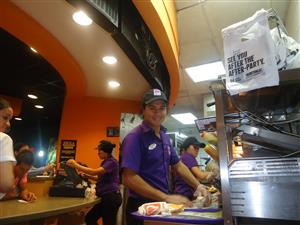
Boosting the employability of Costa Ricans with disabilities
Initiated in 2012, the Plan comprises measures like employment services, increasing workplace demand as well as encouraging development of enterprises. By 2014, 1,653 persons received training services, 49 started their own business and the Network of Inclusive Business expanded to 58 members.
National Employment Directorate, Ministry of Work and Social Security in Costa Rica, National Plan for Work Inclusion of People with Disabilities of 2012-2015, Ministry of Work and Social Security, Costa Rica, Costa Rica -
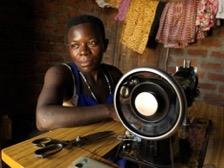
Jobs for the most marginalised people with disabilities
The project focuses on three main areas: Targeted skills development, interventions and responds to the specific needs and interests of the participants and home-based enterprises for those with severe mobility challenges. From 324 participants in 2014 to 2016, 254 have found employment, 49% were female.
Sightsavers, Project “Connecting the Dots”, United Kingdom -
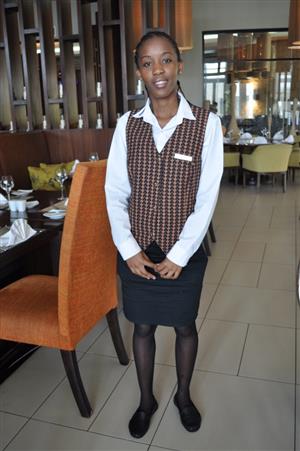
The Living Link: Creating Abilities from Disabilities
To enhance the potential of intellectually disabled adults The Living Link developed a one-year Adult Integration Programme, which consists of teaching essential work readiness and life-skills, providing work training and experience and attending a five-day "Independent Living tour," during which newly learned skills are applied and assessed.
Living Link, South Africa -
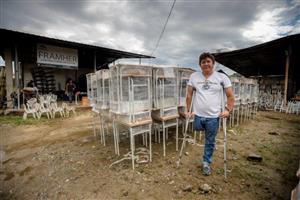
Government supporting self-employment and microfinance
The Programme increases entrepreneurship of persons with disabilities by providing them and their families with personnel and financial support to develop their own business ideas. From 2013 to 2016, more than 4,385 entrepreneurs with disabilities were trained about entrepreneurial and productive topics.
MIPRO - Ministry of Industry and Productivity of Ecuador, Productive Inclusion for Persons with Disabilities Programme of 2013, part of Strengthening Inclusive Services and Support Networks for Persons with Disabilities in Ecuador Ministry of Industries and Productivity (MIPRO) & Ministry of Social Development (MCDS), Ecuador, Ecuador -
Simulating a supermarket as a learning environment
"At the Supermarket" is a simulated supermarket managed by disabled young people where they learn accounting, to speak foreign languages, and to draft a code of conduct. The project also includes guided visits to actual supermarkets and an internship. The learning environment is changed every year.
ITSE C. Colombo - Technical and Economic Institute of Porto Viro, Italy -
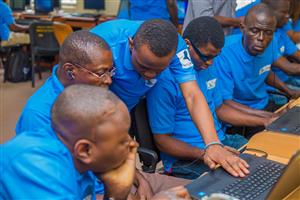
Providing vocational skills and career development to young adults with disabilities
The training focuses on IT entrepreneurship and career development to enable employment or self-employment. Graduates are supported in their search for an internship or a job or receive a small grant to start a company. Between 2017 and 2020, 1,300 people and 570 special needs teachers were trained.
Special Needs Initiative For Growth, TVET for Special Needs Young Adults in Low-Middle Income Countries, Nigeria